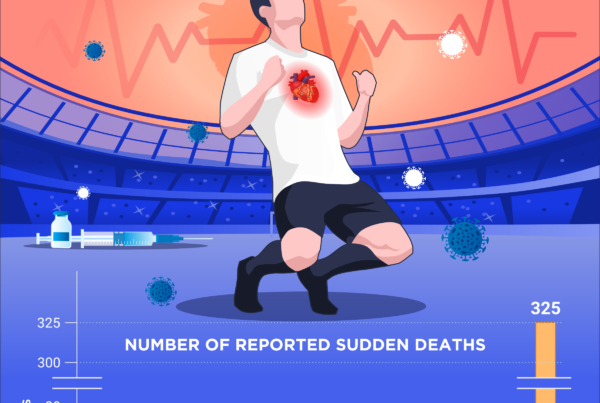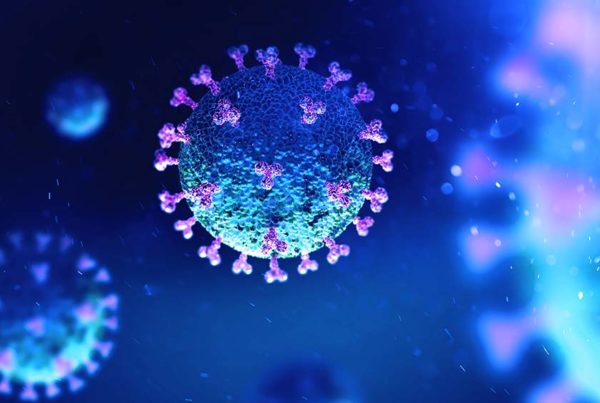
How we can control our risk. It’s as much about our health as the bugs.
If you’ve followed my articles over the years, you already know how best to prevent infections from common bacteria and viruses such as colds and flu — it’s building and maintaining a healthy immune system.
While we are commonly exposed to billions of these so-called germs every day, most are not harmful, and those that are do not usually make us sick. The reason most of us do not get sick is that our immune system protects us against invading organisms.
This past winter season has been a particularly bad one for flu, with the death rate up 65 percent in the first part of 2020, according to the Centers for Disease Control. In addition, we’ve recently been bombarded with news report, some highly sensationalized, about the Coronavirus, which sparks a need to review the best measures to stay healthy during outbreaks of any illness.
Coronaviruses are a large family of viruses, some of which cause illness in people while others only infect animals. Rarely do animal Coronaviruses also infect humans and spread between people. There are many types of human coronaviruses, and some commonly cause cold-like illnesses. The latest one, COVID-19, has not previously been seen in humans, and scientists are just learning about it. While it is a different virus, it’s related to the one that caused the SARS outbreak in 2002-03. Like many viral infections, COVID-19 can cause mild to severe respiratory illness with fever, cough, and difficulty breathing. Coronaviruses are thought to be spread most often by respiratory droplets—from a cough or sneeze of an infected person, or by touching their mouth, for example.
When our immunity weakens we become more vulnerable to illness. (New strains of a virus or bacteria may be more dangerous as our immune systems don’t yet recognize them, including some viruses and drug-resistant bacteria.) So the best recommendation to protect ourselves against infections is to have a great immune system.
Stress impairs immunity
A reason to avoid the hype and hysteria, such as we are experiencing with the Coronavirus, is that it can cause significant stress. Most of this information promoted by the media is not helpful, and promotes panic. Any physical, biochemical and mental-emotional stress is a common and primary cause of poor immunity.
Even the healthiest among us can get sick sometimes, and it’s usually during, or after, times of high stress (sometimes even after a vacation).
Recovery from stress is important too. This includes recovering from a busy work day, travel, and other forms of stress. The most important way to accomplish this is sleep — 7-9 hours a night, uninterrupted.
Exercise can impair the immune system too, due to stress. This occurs primarily during higher-intensity workouts, above MAF 180 heart rate, including competition, and long workout sessions.
Of course, getting a flu shot is artificial immunity but it only protects against a few strains of a flu, often not the latest one. At this point in time a vaccine for the Coronavirus is still months away.
Nutrients for immunity
While people often think of vitamin C supplements for colds and flu, the problem is most of these are made from synthetic vitamin C, not shown to be useful against infection. They can even impair immunity. Natural vitamin C that occurs in foods, however, is a well-known scientifically founded source of immune boosting and infection-prevention.
Yet, there’s something even more important than vitamin C.
Vitamin D is the new C. Sitting in the sun, even for short regular periods, can be a great and immediate immune booster, if you expose enough unprotected skin without sunscreen or makeup. Do this often, and without getting burned. A great tan reflects a functional immune system.
In addition, vitamin D supplements are very effective in conjunction to that produced by the sun. This is especially true in the winter when reduced sun lowers vitamin D levels in the body.
Food-based nutrients including vitamin A (from animal sources) and the B vitamins, zinc and virtually all others are important too, the reason for eating a healthy diet. This includes carotenoids and other phytonutrients contained in foods like turmeric, ginger, and spices like oregano.
Of course, one of the most important nutritional factors to health is avoiding junk food. Healthy eating, which means low-carb, moderate protein and modest levels of natural fats, is a great recipe for improved immunity.
Chronic inflammation also goes hand in hand with poor immunity.
How infections spread
Following healthy habits when in public can significantly reduce exposure to harmful organisms, whether there’s a flu scare or not. This includes avoiding close contact with people, especially those who are sick, washing your hands (with healthy soap or just rinsing) when going out in public and immediately when getting home, using alcohol wipes before eating away from home, and, of course, avoiding touching eyes, nose and mouth when exposed to others before washing our hands.
If you do get sick
If you are so unfortunate to become infected, don’t go out unless absolutely necessary. It not only can worsen your immune system and slow recovery, or make your infection worse, but infect others at work, school or in other public places such as stores. Stay home, get some sun (unless you have a fever), rest, eat well, and avoid contact with others.
The best defense again any harmful virus or bacteria is a healthy lifestyle which promotes improved immunity. Taking precautions through proper nutrition and hygiene is also important to prevent infection. If you do get sick, take it easy until you fully recover.








